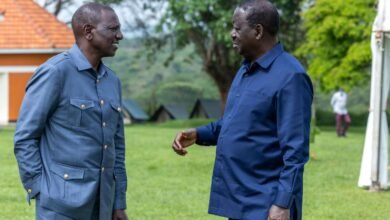
Great heroes are recognised the world over because of the role they play in making their countries progress. Kenya has not been left behind and follows in the footsteps of countries like Ukraine that celebrate the Day of Defender on October 14.
When the independence of a country’s internal processes is doubtful, then automatically your authority is undermined, a scenario that negates what Kenyan Mashujaa fought for.
Yet, on December 19, 2019, the Cabinet chaired by President Uhuru Kenyatta approved the renaming of Moi Day which falls on the 10th day of every October to Utamaduni Day.
This was in line with former President Daniel Arap Moi’s desire that the day be commemorated as a day of service and volunteerism.
Kenya had been marking the holiday since 1988 when the late President Daniel Moi marked 10 years in power but it was scrapped in 2010.
The High Court, however, reinstated the day to be marked as a holiday on November 9, 2017, on grounds its removal was in contravention of the Public Holidays Act.
Under the proposals to amend the Public Holidays Act (Cap 109), the Cabinet also approved the renaming of Boxing Day which falls on 26th December to Utamaduni Day.
Utamaduni Day is meant to celebrate the country’s rich cultural diversity and heritage. The proposed amendments to the Public Holidays Act were approved by Parliament.
To mark the day, Interior Cabinet Secretary Dr. Fred Matiangi declared October 11, 2021, a Public Holiday.
This was in line with the provision of Sections 2 and 4 of the Public Holidays Act (Cap 110).
“It is hereby confirmed that 11th October 2021 will be a Public Holiday, by dint of Utamaduni Day falling on Sunday 10th October 2021,” said Matiangi.
The day is an extension of the Huduma Day, the previously known Moi Dai which used to be celebrated to honour the late Daniel Arap Moi, Kenya’s former president.
It is the first time Kenyans are celebrating the day as Utamaduni Day.
The government emphasised the need for Kenyans to recognise and celebrate the rich cultural diversity of Kenya in a manner that promotes Unity, national cohesion and economic progress in the country.
On October 20, Kenyans will also be celebrating Mashujaa Day.
Initially, Mashujaa Day was known as Kenyatta Day and was celebrated in honour of Kenya’s founding president Mzee Jomo Kenyatta and a few other freedom fighters.
However, after the new constitution was promulgated on August 24, 2010, the name was changed, marking a new beginning in Kenya’s history for all Shujaas.
Former Prime Minister and ODM leader Raila Odinga explained the reasoning behind the original celebrations on October 20.
While in Bukhungu Stadium in Kakamega County, he divulged that the day was first commemorated in 1958 when the State of Emergency was declared by colonialists in Kenya.
He further revealed that legislators went on a hunger strike to protest the incarceration of Mzee Jomo Kenyatta and other political prisoners.
“Iilikuwa wakati wa hali ya hatari, wale viongozi wa Waafrika katika Bunge wakaamua ati hakuna kula, kunywa na kuvuta sigara na kutembea kwa mabasi.”
Also Read:
- Kenya maintains ground on border row with Somalia ahead of ICJ ruling
- Moi Day renamed to Huduma Day, Boxing Day to Utamaduni Day
- Charles Njonjo: I am alive and well
“(It was during the State of Emergency, African representatives in the Legislative Council (LegCo) went on a hunger strike and also refrained from using public transport),” he stated.
He added that: “Mwaka iliyofuata, wakasema tarehe ambaye hali ya hatari ilitangazwa, itakuwa Kenyatta Day sababu walikuwa wanapigania kuachliwa huru kwa Mzee Kenyatta.”
“(The following year the representatives organized public demonstrations on the day when the state of emergency was declared to pushing for the immediate release of Mzee Kenyatta).”
That year, Mzee Jomo and his companions completed three-quarter of their sentence of imprisonment and became eligible for release.
However, a restriction order was immediately applied and he was detained at Maralal, 90 miles south of Lodwar.
After Kenya got independence in 1963, the date was embedded in the law as Kenyatta Day until 2010 when the new constitution renamed the public holiday to Mashujaa Day to honour all Kenyan heroes.
Four key lessons drawn from this move to honour heroes from all walks of life can be drawn from Ukraine’s Day of Defender:
1. It Takes Courage
2. Perseverance Is A Virtue
3. Mashujaa Make Us Patriotic
4. Free To Elect Leaders
A country’s independence means the electorate is free to vote for their leader of choice without external interference or intimidation. This is at the heart of sovereignity and explains why Kenya has had to postpone elections in different regions in the past.
When the independence of a country’s internal processes is doubtful, then automatically your authority is undermined, a scenario that negates what Kenyan Mashujaa fought for.





